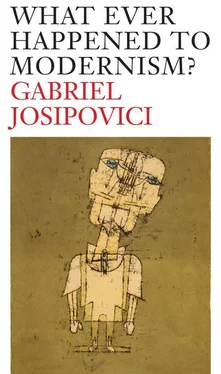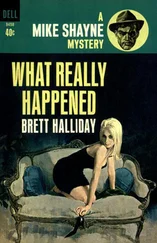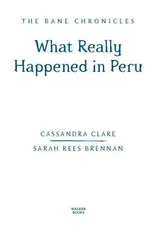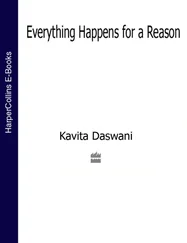Some readers may be old enough to remember the sense of impotent outrage we used to feel when, at the climax of a film, something happened to the projector or the reel and the screen went blank, followed by the lights going on and apologies from the management together with the promise that everything would be in order soon and the film would go on. Something of that feeling now engulfs the reader of Don Quixote . This is the first we have heard about a manuscript on which the story depends, and though it has been prepared for as early as the Prologue, the sudden discovery that not only is this the case but that the manuscript has now petered out is devastating. The next chapter takes stock of the situation:
In part one of this history, we left the brave Basque and the famous Don Quixote with their swords raised and unsheathed, about to deliver two down strokes so furious that if they had entirely hit the mark, the combatants would have been cut and split in half from top to bottom and opened like pomegranates; and at that extremely uncertain point, the delectable history stopped and was interrupted, without the author giving us any information as to where the missing parts could be found.
The new author or editor, or whatever we choose to call him, now takes centre stage, telling us that this caused him no end of grief, though he was convinced that ‘it seemed impossible and completely contrary to all good precedent that so good a knight should have lacked a wise man who would assume the responsibility of recording his never-before-seen-deeds’. He concludes sadly that only Time is to blame, ‘Time, the devourer and consumer of all things, who had either hidden it away or consumed it’. However, as is the way with these things, one day when he is in the market in Toledo, a boy comes up to sell some notebooks and old papers to a silk merchant he is talking to, and he takes a look at one of them. Unfortunately it is in Arabic, so he needs a translator, but in Toledo these are not hard to find. It turns out that the book is entitled History of Don Quixote of La Mancha Written by Cide Hamete Benengeli (or, in good Castilian English, Mr Hamid Eggplant). Promptly buying the book, the ‘editor’ engages a Moriscan translator, who in barely a month and a half translates the entire history ‘just as it is recounted here’.
However, though the editor tells us that ‘no history is bad if it is true’, he also has to admit that the author was an Arab, and ‘the people of that nation are very prone to telling falsehoods’. Moreover, because they are such enemies of Spain, ‘it can be assumed that he has given us too little rather than too much’. However, in the spirit of genial obtuseness which seems to characterise him, he concludes:
In this account I know there will be found everything that could rightly be desired in the most pleasant history, and if something of value is missing from it, in my opinion the fault lies with the dog who was its author rather than with any defect in its subject. In short, its second part, according to the translation, began in this manner…
Thus we are to rely on a historian who belongs to a race of liars who is writing about one of his enemies, and on a translator who has put hundreds of pages of Arabic into Spanish in under two months. Yet such is the power of narrative that we soon forget all this, except, of course, when it suits Cervantes to remind us.
As Marthe Robert points out, and as I have been arguing, the book is not really a satire on popular romances, such as Amadis of Gaul , which at moments it purports to be. It is about our relation to tradition and about the place of art, and especially that most mysterious of arts, the art of narrative, in a world where disenchantment has eroded our confidence in the sacramental. Behind Amadis , as Robert rightly insists, looms the figure of Homer (just as behind the popular tales of the giants Rabelais parodies looms the book of Genesis). The author of Don Quixote , she says,
is not, like the Homeric bard, a central component of an organisation where each one is, by virtue of tradition, both the protégé and the protector of order, but a solitary individual, answerable to no-one but himself, without any faith other than his experience, without any guide other than his intuition.
This reminds one of Walter Benjamin's remarks on the difference between the novel and its predecessor, the oral tale:
What differentiates the novel from all other forms of prose literature — the fairy tale, the legend, even the novella — is that it neither comes from oral tradition nor goes into it. This distinguishes it from storytelling in particular. The storyteller takes what he tells from experience — his own or that reported by others. And he in turn makes it the experience of those who are listening to his tale. The novelist has isolated himself. The birthplace of the novel is the solitary individual, who is no longer able to express himself by giving examples of his most important concerns, is himself uncounseled, and cannot counsel others. To write a novel means to carry the incommensurable to extremes in the representation of human life.
And he at least understands Don Quixote 's role in the transition from the world of the story-teller to the world of the novelist: ‘Even the first great book of the genre, Don Quixote , teaches how the spiritual greatness, the boldness, the helpfulness of one of the noblest of men, Don Quixote, are completely devoid of counsel and do not contain the slightest scintilla of wisdom.’
And just as the book tells us of the onset of the hero's madness and attributes it to his reading too many books on chivalry, so it describes its passing. At the end, as he lies dying, Don Quixote finally admits to himself, and to those around him, that he has been mistaken all along, and he dies recognising the folly of his quest, the madness of his desire to find meaning in everything in the world. But by this time, of course, as with the Prologue, his life has been lived and the book of his adventures completed.
Just as the discovery of the figure of Panurge, a little way into Pantagruel , the first of the five books to be written by Rabelais, seems to have freed Rabelais to pursue his epic and encyclopaedic ambitions with a free heart, so the invention of the Knight of the Mournful Countenance seems to have allowed Cervantes to move from the lazy and sluggish author unable and unwilling even to write a Prologue, to the writer we know and love. His insight lay in his grasp of how Don Quixote's invention of himself, his forcing himself into a role to be played for the duration of his life, both is and need not be (quite) a mirror of the writer's. At the end the poor knight cannot keep it up, and at his death has to admit that he behaved like a fool, that there were no real grounds for any of his actions. The writer admits as much from the start as we have seen. The extraordinary quality of the book, what gives it its status as both the first novel and the first anti-novel, depends on the fact that by doing so he allows the book to keep moving and the nature of the hero's character and adventures to see the light of day. The real protagonists, though, are the writer and the reader, who both undergo adventures enough to last them a lifetime, even if neither ever quite understands what these are.
3. Anxiety Is The Dizziness Of Freedom
One cannot look at Dürer's
Melencolia I
or read a chapter of Rabelais or Cervantes without sensing that they knew in their bones that they were living through a period of decisive change. Every major artist of the time sensed this, but most, from Leonardo to Michelangelo, from Petrarch to Spenser, saw only the opening up of new possibilities as older traditions crumbled and were swept away. The repressive tyranny of the Church was being destroyed and Protestantism had got rid of old superstitions while Humanism gave the individual a new freedom to express himself — that at least is the myth that was perpetuated by both Protestantism and Humanism, and one that in its simplicity and apparent self-evidence still shapes the popular imagination. Throughout the last century, though, and often under the impetus of Modernism itself, this picture has slowly been eroded. It now seems clear that what happened was that Protestantism and Humanism between them brought into being the world picture that was to dominate the following three centuries, a picture that seemed to explain everything and that propelled Europe into leading the world in science and technology, but that really was only
Читать дальше












